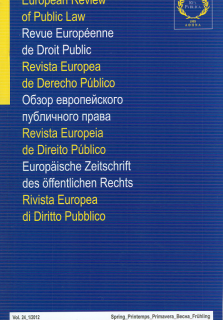
THE STATUS OF THE JUDGE:
INDEPENDENCE AND IMPARTIALITY
AGUSTÍN GORDILLO
Emeritus Professor, University of Buenos Aires
When considering the setup of international administrative tribunals, their status, reputation and performance are heavily influenced by two key principles relating to the status of adjudicators: impartiality and independence. Impartiality means that the adjudicator is materially disinterested of the outcome of the case he or she has to decide. Independence means that the adjudicators obey no orders from anyone, most specially those in power. Further, they must listen to no arguments ex¬cept those properly presented in court, without accepting ex parte presentations or suggestions from anyone, specifically including the Administration. There are several mechanisms and checks and balances through which impartiality and independence of adjudicators sitting in international administrative tribunals may be protected: limited and/or non-sequential terms in office, selection among candidates nearing the end of their careers, enhanced social/public control of procedural rules, of organizational arrangements and of decisions are among the most common ones. Yet, even if the above have served the objective of protecting and even ensuring the independence and impartiality of adjudicators of many international administrative tribunals to a satisfactory degree, further, and stricter, conditions would render their respect beyond any question or doubt: the absence of any relation, past or present, between adjudicators and the Administration, and the exclusion of any such possibility for the future. This can be achieved by selecting adjudicators whose provenance is other international administrative tribunals, who have never and will never have and/or play any other role, perform duty or render service to the Administration.
Lors de l'examen de l'organisation des tribunaux administratifs internationaux, leur statut, réputation et fonctionnement sont fortement influencés par deux principes essentiels en ce qui concerne le statut des juges: l'impartialité et l'indépendance. L'impartialité signifie que le juge est sensiblement désintéressé de l'issue de l'affaire qu'il ou qu'elle doit trancher. L'indépendance signigie que les juges n'obéissent pas à aucun ordre de quiconque, plus particulièrement de ceux qui sont au pouvoir. En outre, ils ne doivent écouter que les arguments qui sont proprement pré¬sentés en cour, sans accepter des présentations ou des suggestions ex parte de toute personne, spécifiquement y compris l'Administration. Il y a plusieurs mécanismes et un système d'équilibre des pouvoirs par lesquels l'impartialité et l'indépendance des juges des tribunaux administratifs internationaux peuvent être protégées: durée du mandat limitée et/ou non-séquentielle, sélection parmi des candidats en fin de leur carrière, contrôle social/public renforcé des règles de procédure, des mesures organisationnelles et des décisions sont parmi les plus communs. Cependant, même si tout ce qui a été mentionné plus haut poursuit l'objectif de protection et même de garantie de l'indépendance et de l'impartialité des juges de nombreux tribunaux administratifs internationaux à un degré satisfaisant, d'autres conditions, plus strictes, rendraient leur respect au-delà de tout doute: l'absence de toute relation, passée ou présente, entre les juges et l'Administration, et l'exclusion de toute telle possibilité pour l'avenir. Cela peut être réalisé par sélectionnant des juges dont la provenance est d'autres tribunaux administratifs internationaux, qui n'ont jamais et n'auront jamais un autre rôle, fonction ou service par rapport à l'Administration.





















